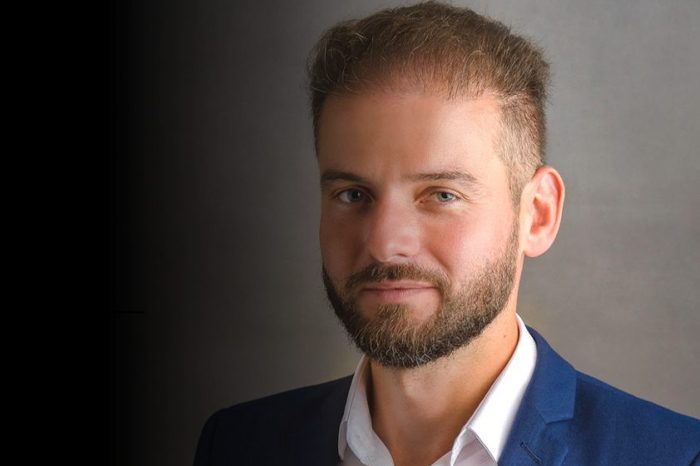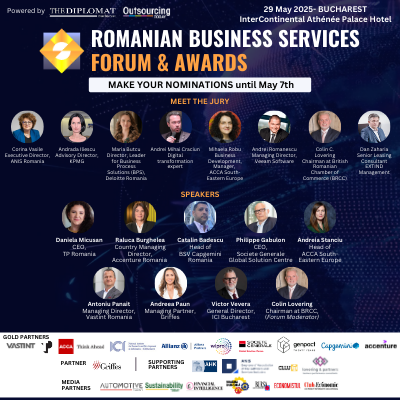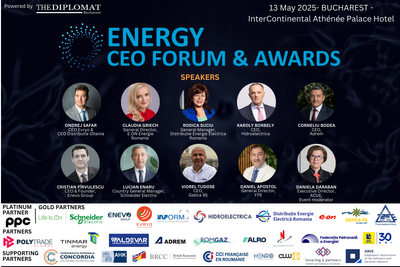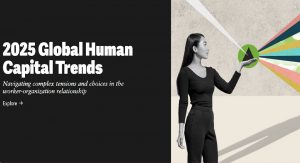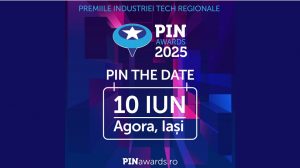Andras Sztaniszlav at ARRP debate in Bucharest: Global agencies are developing their own AI services and products, with employees now working solely as AI developers.

ARRP hosted a debate in Bucharest on global communication industry trends and future challenges. The special guest was Andras Sztaniszlav, Interim CEO of the International Communications Consultancy Organisation (ICCO).
The event took place online on Monday, April 28, with the exclusive participation of members of the Romanian Public Relations Association (ARRP), and was moderated by Alexandra Mihăilescu, ARRP Board Vice President and Managing Partner at BDR Associates.
Andras Sztaniszlav, Interim CEO of ICCO, presented global insights from the ICCO World PR Report 2024–2025. The discussions focused on three major themes, highlighting various trends and challenges, as well as potential solutions to the problems facing the communication industry both globally and in Romania.
The main topics addressed were: Global Trends and Challenges in PR; The Impact of AI on PR and Ethics; The Role of PR Professionals in the AI Era.
Main Challenges and Risks in the Industry
Armed conflicts and geo-economic tensions, as identified in the World Economic Forum’s Global Risk Report, are considered a top priority in shaping new communication strategies. At the same time, the Edelman Trust Barometer highlights ongoing trust issues faced by corporations and a growing societal expectation for corporate leaders to stand more firmly for values and principles.
Another key source of insight, the European Communication Monitor, emphasizes challenges related to geopolitics, AI, and management skills, while also underscoring the growing international concern within PR agencies regarding AI policies.
Although transparency and education in AI use are essential, public relations will remain human-centred, even as it integrates these emerging tools in line with the increasingly widespread adoption of AI technologies.
Future EU legislation will require official disclosure if more than 50% of any content has been generated using AI. In this context, PR agencies might need to consider revealing the percentage of AI-generated content in their client presentations and campaigns, as transparency and education remain fundamental to responsible AI usage.
Disinformation
Professional organizations play a major role in setting the rules to combat fake accounts and disinformation. In this regard, ICCO has developed the Warsaw Principles, a reference framework for addressing ethical issues in the age of disinformation, highlighting the significant responsibility PR professionals hold amid challenges posed by AI.
The evolution of AI should be viewed in the context of other major technological revolutions -such as the internet, smartphones and social media- and it is crucial not to forget the lessons learned from those transitions.
The ICCO senior representative identified four levels of responsibility: individual, agency, client, and industry associations, emphasizing that concrete action is needed at each level to effectively address today’s challenges.
It is also essential for PR agency leaders to assess team diversity in terms of age, gender, knowledge, industry specialization, and communication channel expertise. This is increasingly important as PR professionals are now expected to learn how to train and use AI tools for SEO and content creation.
Andras Sztaniszlav emphasized the importance of understanding how artificial intelligence tools work and adapting to new communication strategies: “Global agencies are developing their own AI services and products, with employees now working solely as AI developers. This trend brings opportunities but also raises ethical and security concerns for instance where and how company data is stored. This is where our individual and collective professional responsibility comes in. At the same time, the fragmentation of media channels requires personalized communication strategies—an area where AI can be of great help. Building diverse teams is essential to meet these challenges and uphold ethics in the face of AI-driven disinformation.”
The ICCO Report reflects a sense of optimism within the industry, with a strong focus on ESG, strategic consultancy, and widespread adoption of AI tools.
During the debate, the next steps for collaboration between ARRP and ICCO were outlined as follows:
• ARRP members will actively participate in ICCO working groups focused on AI, ethics, public affairs, healthcare, and emerging talent.
• ARRP will continue to educate its members on the ethical use of AI in PR, including matters related to transparency and data security.
• ARRP is exploring updates to university curricula to better prepare future PR professionals for challenges related to AI and disinformation.
• ARRP aims to organize future sessions dedicated to global trends and challenges in PR.
Founded in 1995, the Romanian Public Relations Association (ARRP) was established to strengthen and expand the community of communication professionals in Romania. Today, the association brings together experts from companies, agencies, and academia to define and shape the future of Public Relations amid the rapid evolution of communication tools. ARRP’s mission is to ensure the continued relevance and impact of Public Relations in shaping societal communication.
Photo credits: Sztaniszláv András bekerült az ICCO felsővezetésébe | Media1

